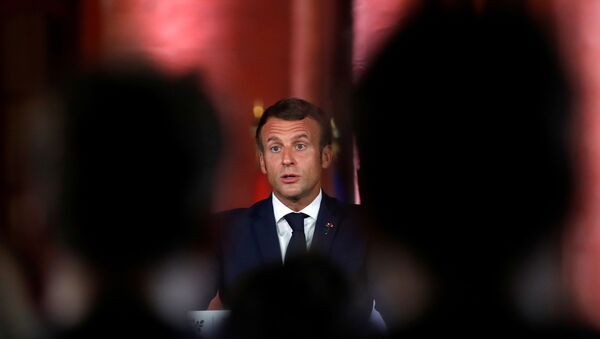"The prime minister was appointed by the Lebanese parties and political forces. President Aoun and [Parilament Speaker] Nabih Berri pledged that the government would be formed as soon as possible, no later than in 15 days", Macron said at a press conference in Beirut.
A day before Macron's visit to the Arab country, Lebanese President Michel Aoun appointed Mustapha Adib as the new prime minister and tasked him with forming the new government following the resignation of Hassan Diab’s cabinet after the Beirut port blast.
The French president added that all political forces in Lebanon supported the roadmap for reforming and overcoming the country's crisis.
"The proposed roadmap was supported by all parties, including the issue of port restoration, financial records, and prosecution of corruption", Macron noted.
He added that the implementation of reforms was an intra-Lebanese matter and that France was not going to interfere in the country's internal affairs.
"The task of France is solely to check whether effective reforms will be carried out in Lebanon in order to persuade the international community to provide aid", Macron said.
The 4 August massive blast caused by improper storage of 2,750 tonnes of explosive ammonium nitrate (confiscated by customs services in 2014) in the Beirut port, brought widespread destruction and left at least 200 people killed. Thousands of others were injured.
The French president warned that Lebanon would be denied aid if it failed to implement any major reforms by December.
"I will be frank: if there are no reforms by December I will tell the international community and the people of Lebanon that we won't be able to help them. And I will say whom I hold responsible for this", Macron said.
He hinted at sanctions and said France was ready to draw up a list of people it believed were trying to slow down reforms or were involved in terrorism-related financial transactions or corruption schemes.


